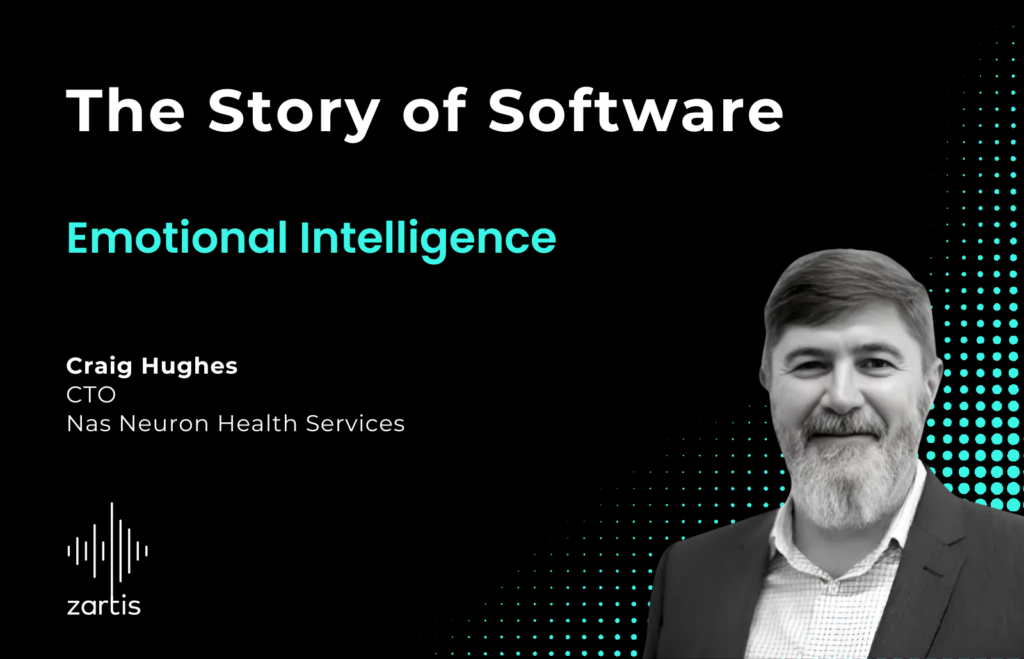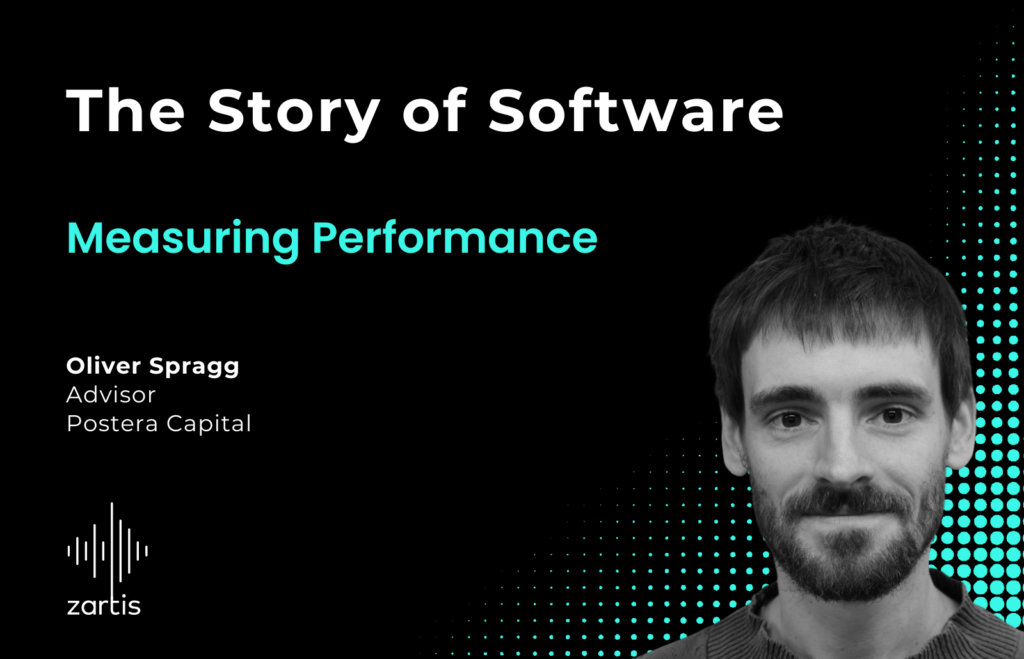Padraig Coffey, CEO at Zartis and podcast host, is joined by Corey Stedman, CEO of Greenfire, as they discuss the technology behind crypto wallets and exchanges.
Cryptocurrency Wallets and Exchanges
The Guest – Corey Stedman, CEO of Greenfire
Corey Francis has over 10 years of experience in the IT world, mostly leading teams and projects in the fintech industry, working on blockchain technologies. Today, he is the CEO of Greenfire, and his team is developing a wallet called Greenery, that will change the way people manage their crypto assets.
Understanding the User and Technological Context of Cryptocurrency Platforms
As the world of cryptocurrencies is gaining more attention and popularity, it is also evolving and changing. More and more platforms are offering us access to trading and storing currencies, each with their benefits and downsides, each facing new technological challenges and security risks. In today’s episode, we aim to explore the world of cryptocurrency wallets and exchanges from both the user and developer perspectives.
Some of the topics covered include:
- What are digital wallets and crypto exchanges?
- What are the different types of crypto wallets and exchanges?
- What should people consider when choosing a platform for their assets?
- What are the technological challenges of building a crypto wallet?
- What are the challenges that remain to be addressed in this space?
Episode Highlight
Episode Transcript (abridged version):
[…]
For the listeners who may be somewhat new to the crypto world. Could you explain what digital wallets and exchanges are?
A cryptocurrency wallet is not dissimilar to your own wallet, in that they keep the cash. Think of it like your bank account. You would be expecting to get an account number, and that’s the number that in a Fiat world people would wire money to. In a cryptocurrency world, that is your address that someone who’s sending Bitcoin or Litecoin, or Ethereum uses. Basically, a wallet holds the interface with a blockchain.
An exchange is where you purchase cryptocurrency, and there are two types of exchanges. There’s a primary exchange and secondary exchanges. Primary exchanges like Coinbase or Bitstamp or Gemini allow you to purchase cryptocurrency directly with regular exchanges like the US Dollar, or with exchanges that don’t deal with fiat currencies for whatever reason. Sometimes they just don’t want to and sometimes they’re working towards that and they just don’t have it right now; for you to purchase cryptocurrency, you have to use cryptocurrency on those platforms. An exchange on the software side is an amalgamation of wallets, and software that does the bids and asks, lines the transactions and allows us to execute trades. That’s how we see the daily price, or not even the daily price, but the minute by minute price of cryptocurrencies such as Bitcoin, Litecoin, Ethereum. Because of people bidding on one end and asking on another and those bids consistently lining up, we get the cryptocurrency market and the prices on these exchanges.
There are different types of wallets in the crypto world. Can you tell us a bit about those?
Yes, native wallets, for example. A Native Wallet is a wallet that is native to the cryptocurrency. For instance you have a Bitcoin wallet, a Litecoin wallet, and they’re very smart.
There are also other wallets that are not native, called Light Wallets. Native wallets are specific to the currency, and they download the entire blockchain, but a Bitcoin is over 250 gigabytes, and same with Ethereum I believe. So, it downloads the entire blockchain as a node on the network. Whereas, a light wallet is a wallet that does not download the entire blockchain, however, interfaces with a wallet that has downloaded the entire blockchain.
Then there are other wallets called Multi-Currency Wallets, which are light wallets that support multiple currencies. They don’t download the entire blockchain but they connect to other services or other wallets that provide access to the blockchain that they index into this multi-currency wallet.
[…]
Corey, you mentioned that you have been interested in this area for close to a decade and you began investing seven or eight years ago. For those of our listeners who aren’t currently investing in the crypto space, what advice would you give to people when they’re looking to choose a platform for their assets?
That’s a good question. When you choose an exchange platform to sign up with, make sure that it is credible and that they have the security which is pretty standard now, but that also you have an assurance that they’re not going to implode and you lose your currency. Now one of the things I always tell someone is that, even if you were to use Coinbase, or Gemini like any of these big exchanges that are noteworthy – you never know. They are under constant threat of attack. So what do you do? You always have to have a wallet so that you don’t leave your cryptocurrency on the exchange; you take it in your possession. One of the fundamental things in a cryptocurrency world is that if you don’t have your keys, you don’t own your currency. Meaning to say, when you leave your currency on an exchange, you don’t have access to the private keys that allow you to send it to wherever you want, or to load it up in another wallet. Exchanges don’t offer that, which is why, when they implode, you lose access to your currency. What you need to do is, even though you may sign up to an exchange, you don’t leave your currency up there. I guess to answer your question more directly, any exchange that you’re on, there’s always a risk of you losing your currency, and so it’s best for anyone starting off to set up a multi-currency wallet on their laptop, and their cell phone, and make sure to stick them together. So, if you’re not actively investing, you move your currency to your private wallet.
I’ve got a question for you about wallets themselves. Do you see a broad range in terms of the quality of wallets that are out there, and are there some significant risks about wallets that consumers should be conscious of?
Yes. So one of the things I’ve been noticing actually on Facebook is there have been ads taken out for one of the top wallets, Exodus, and they do great work over there. However, there has been a campaign on Facebook to impersonate them. What they’ve been doing was impersonating Exodus, as if they have taken out this ad offering a web wallet of Exodus, and that’s a big red flag. What they’ve done is when you click on the link it takes you to a website, which looks like the Exodus website perfectly, and for you to download the software, it asks you to put in your 12 word phrase. Now, your 12 word phrase is essentially your private key, it is actually the seed to multiple private keys for your cryptocurrency wallet, and it’s very dangerous. So, that’s one thing that as you’re entering the space, you have to be mindful of. There are a lot of disingenuous actors in the space and these are some of the things that they tried to do to essentially steal people’s money.
What are the technological challenges of building a new crypto wallet?
So, I know the main challenge with building the wallet is actually getting it to send as the sending mechanism is quite complicated, because you have to assign the transactions, and there are a lot of them involved, to put it shortly. But aside from that, while building a wallet,
my team and I, we don’t want to just build a wallet that’s just like everything else. We want to build something that is not only scalable, but that’s also quite distinct on the marketplace, and that also lays the foundation for other projects as well. Prior to this, I was working on another project and there was a missing component, and I just couldn’t figure out what it was. Then, as we embarked on this journey with our wallet and it is called Greenery, it just clicked that this will be the cornerstone of Greenfire, and it will lay the foundation for other projects. For the projects that we didn’t work on in the past, this actually is the missing piece of the puzzle. So, to answer your question a little bit more directly, in regards to the challenges, getting it to send, testing it , and building up those auxiliary functions which makes it distinctively quick when integrating with exchange services – these have been challenging.
You’ve touched on some very interesting topics there in terms of security auditing, and in terms of the political considerations. What do you see are some of the unsolved challenges in this space, and what might we see next in the world of wallets, exchanges, etc.?
So, what might we see next in the world of wallets, exchanges, crypto etc. is the natural evolution of the currencies to build more bridges to the real world. You know, you’re seeing a lot of these lending protocols, you have Ave, Celsius, Salt, and a couple of others as well and right now it’s more so, lending for the purpose of investing. But in the real world, the purpose of lending, the purpose of taking out a loan is mostly in regards to education, in regards to buying a house, buying a car, or starting a business, and maybe other miscellaneous things. What I see is that bridge happening, where one takes out a loan in the USDC or USDT chain to purchase a car, or they put up their Bitcoin as collateral to take out a loan to purchase a home. So, that’s where I really see the future of cryptocurrency in general, going. It actually goes back to, you know what had previously said in regards to security. If we’re not securing the protocols, then it undermines the promise that cryptocurrency can bring and it delays the adoption of all these potential use cases where Bitcoin or Ethereum or Litecoin can be used in the real world.
You can find The Story of Software podcast on:
Apple Podcasts, Spotify, Stitcher, Deezer, & any other podcast platform of your choice.
We hope you enjoy listening to this tech podcast and feel free to share any feedback with us: podcast@zartis.com







